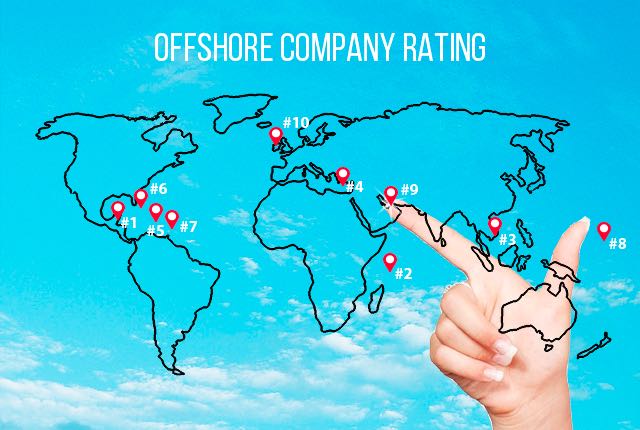Navigating Offshore Company Formation: Legalities and Benefits Clarified
Navigating Offshore Company Formation: Legalities and Benefits Clarified
Blog Article
Offshore Company Development Demystified: Key Considerations and Best Practices
Navigating the complexities of offshore business development calls for an eager understanding of numerous variables that can dramatically impact the success and legality of such endeavors. From choosing the suitable lawful jurisdiction to thoroughly assessing the tax obligation ramifications, each step holds vital significance while doing so. Company structuring, conformity with regulative requirements, and careful factor to consider of financial and monetary aspects are all vital elements that require thoughtful deliberation. As the details of developing an overseas business unfold, a tactical method directed by finest practices comes to be extremely important in making sure a smooth and legally sound operation.
Legal Territory Choice
Picking the suitable legal territory is a vital decision when developing an offshore firm, as it substantially impacts the governing framework within which the entity will certainly run. Different territories use varying degrees of tax obligation efficiency, regulative requirements, personal privacy protections, and political stability. The option of territory ought to straighten with the particular objectives and demands of the offshore business.

Furthermore, the regulative setting of a jurisdiction is vital. Some territories have strict monetary guidelines and conformity requirements, which can be burdensome for particular sorts of companies. On the other hand, even more forgiving regulative settings might supply flexibility however can likewise present threats in regards to reputation and validity.
Tax Implications Analysis
Taking into consideration the tax effects is a fundamental element of developing an offshore firm as it directly affects the economic framework and operational techniques of the entity. One of the main reasons services choose for overseas business development is to benefit from beneficial tax obligation routines. Working carefully with tax consultants or professionals who specialize in global tax issues can provide useful insights and guidance in structuring the offshore business in a tax-efficient way.
Company Framework Preparation
Effective business framework planning plays a critical role in the effective facility and procedure of an offshore firm. One typical method is to establish a holding firm in a jurisdiction with beneficial tax regulations to hold the properties of the operating firm, which may be situated in a different jurisdiction for functional functions.

Additionally, the option of business framework, whether it be a limited obligation firm, a corporation, or a count on, can significantly affect the total success of the overseas venture. By very carefully preparing the company structure, offshore companies can improve their functional effectiveness, secure their properties, and maximize their tax responsibilities.
Conformity and Regulative Needs
What are the essential conformity and governing needs related to developing and operating an overseas business? When establishing an overseas business, it is crucial to stick to the regulatory structures of both the overseas territory and the home country of the business owners. Common compliance demands include the submission of annual monetary statements, keeping correct audit documents, and conducting normal board conferences. Furthermore, offshore business frequently need to designate local directors or a signed up representative to ensure compliance with local laws.
In addition, understanding and abiding by worldwide laws, such as anti-money laundering (AML) and recognize your consumer (KYC) demands, are important for offshore business to stop illegal activities. Due persistance in confirming the identities of useful proprietors and guaranteeing openness in service operations are crucial offshore company formation parts of regulatory compliance.
To browse these complexities properly, involving with lawful and monetary professionals with competence in offshore regulations is extremely advised. Remaining upgraded on changing regulative landscapes and proactively addressing conformity concerns can assist overseas companies operate legitimately and ethically while optimizing their service potential.
Financial and Economic Considerations
When developing an offshore business, mindful focus to financial and monetary factors to consider is paramount for guaranteeing operational performance and governing conformity. Picking the right banking partner is critical, as it can influence Find Out More the business's day-to-day purchases, accessibility to capital, and overall financial security. Offshore companies often pick banks in territories known for their stability, monetary infrastructure, and beneficial laws. It is necessary to think about elements such as the financial institution's credibility, variety of services provided, charges, and its adherence to worldwide banking requirements.
Furthermore, comprehending the financial laws in both the overseas territory and the home nation is important to avoid any kind of legal issues. Some offshore jurisdictions have rigorous financial secrecy regulations, which may influence the flow of information between the business, its investors, and the financial institution. Compliance with anti-money laundering (AML) and know your client (KYC) regulations is additionally important to avoid economic criminal offenses and maintain an excellent standing with governing authorities. By meticulously navigating the financial and financial landscape, overseas companies can establish a strong financial structure for their procedures.

Final Thought
In conclusion, overseas business formation entails careful factor to consider of legal territory, tax effects, business framework, compliance, and financial factors to consider. By attending to these key aspects and following ideal methods, companies can develop overseas entities successfully. It is important to comply with governing requirements and make certain financial transparency to keep integrity and minimize risks. Overall, complete preparation and adherence to monetary you can try here and lawful standards are essential for an effective offshore business development procedure.
Thinking about the tax effects is a fundamental element of developing an offshore business as it directly influences the financial structure and operational methods of the entity. Working very closely with tax experts or consultants who specialize in worldwide tax obligation issues can provide important insights and advice in structuring the overseas firm in a tax-efficient fashion. One typical technique is to establish a holding company in a territory with desirable tax obligation regulations to hold the possessions of the operating company, which might be situated in a various jurisdiction for operational objectives. When establishing up an offshore business, it is crucial to adhere to the regulatory structures of both the offshore jurisdiction and the home nation of the company owners.In final thought, offshore firm formation involves mindful factor to consider of lawful jurisdiction, tax obligation effects, business structure, conformity, and financial factors to consider.
Report this page